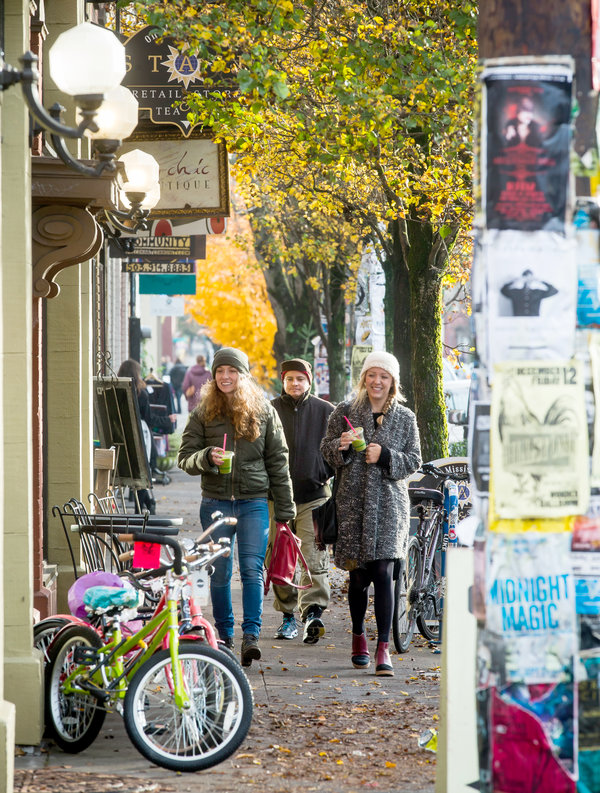
But while signposts identify the stretch as “Historic Mississippi,” you will have to scratch to find that history.
Settled mostly by Scandinavians and Germans in the late 1800s, the district — and the Boise-Eliot neighborhood to which it belongs — became heavily African-American by World War II. In 1919, the Portland Realty Board forbade its members to sell property to blacks and Asians, except in a few places. And though that policy was formally rescinded in 1952, banks continued to redline those areas, hampering development and depriving property owners of loans for improvement. In the 1950s through the ’70s, highway construction and urban renewal displaced many residents of northeast Portland, reconfiguring its neighborhoods and contributing to their decline.
Kay L. Newell, who moved her light bulb store, Sunlan Lighting, to the corner of Failing and Mississippi in 1991, recalled that 43 businesses, including a metal shop and a headstone carver, operated on Mississippi at the time. But they did it behind barred doors and shuttered windows, she said, as a protection against theft and gang violence. Today, Ms. Newell, who wore a black beret over long graying braids, works behind big plate-glass windows filled with vintage bulbs and geegaws. She dates the beginning of the turnaround to 1995, when the city of Portland began a program for improvement with input from the community.
“We’ve gone from the worst neighborhood in the city to one of the hottest and coolest,” she said.
Not everyone agrees. Angel Barrera, who has lived in the area for 30 years, interrupted a walk with his dog to complain about density. We were standing near a pair of small houses between North Shaver Street and North Mason Street that he said would soon be demolished to make way for new apartments. As in many revitalized neighborhoods, this one is being planted with expensive condos and rental buildings.
The displacement of longtime residents is a concern, and so is parking. Mr. Barrera, who sported a tattoo on the side of his neck that read “Trust No Man” in Chinese, said he has to drive blocks to find a space. He also fretted about rising property taxes.







